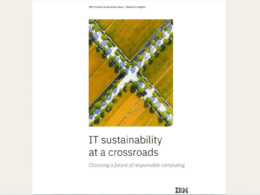CSRHub’s analysis reveals that using the AA1000 Assurance Standard (AA1000AS) to validate an ESG report positively impacts a company’s ESG rating. Data from over 7,000 entities demonstrated that publishing a sustainability report improves an organisation’s consensus ESG ratings, and this benefit is amplified when the report is assured.
The study, titled “An Analysis of the Effectiveness of the AA1000 Assurance Standard in Sustainability Disclosures,” highlighted that issuing an ESG report boosted a company’s overall score by an average of 5.4 points over two years, 0.9 points higher than companies that do not report. Entities using the AA1000AS v3 assurance standard to assure their reports experienced a 5.9-point increase, surpassing non-reporters by 1.4 points and other ESG reporters by 0.5 points.
Consistent use of the AA1000AS has been linked to ongoing improvements in ESG ratings year-over-year. The AA1000AS v3 notably enhanced scores in six sustainability areas: Leadership Ethics, Board Management, Training, Health and Safety, Diversity and Labour Rights, and Compensation and Benefits.
CSRHub also identified several key factors that contribute to improving ESG ratings. Employing a globally recognised standard like AA1000AS v3 enhances the credibility of sustainability reporting and assurance processes, ensuring alignment with external regulations and standards that demand precise ESG data. Also, utilising a common language and a coherent materiality narrative improves stakeholder communication and investor decision-making confidence. Additionally, The AA1000AS fosters a culture of ongoing enhancement and innovation.





















